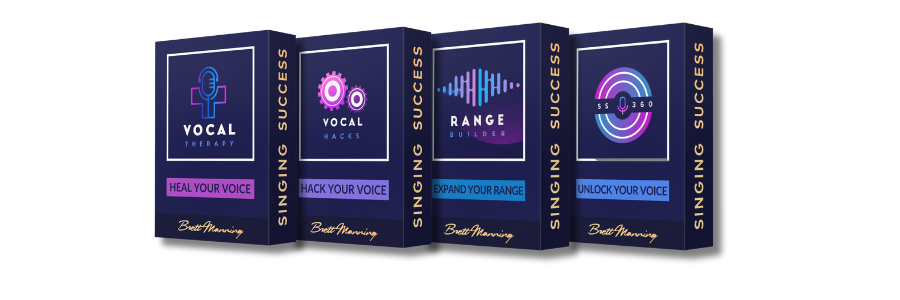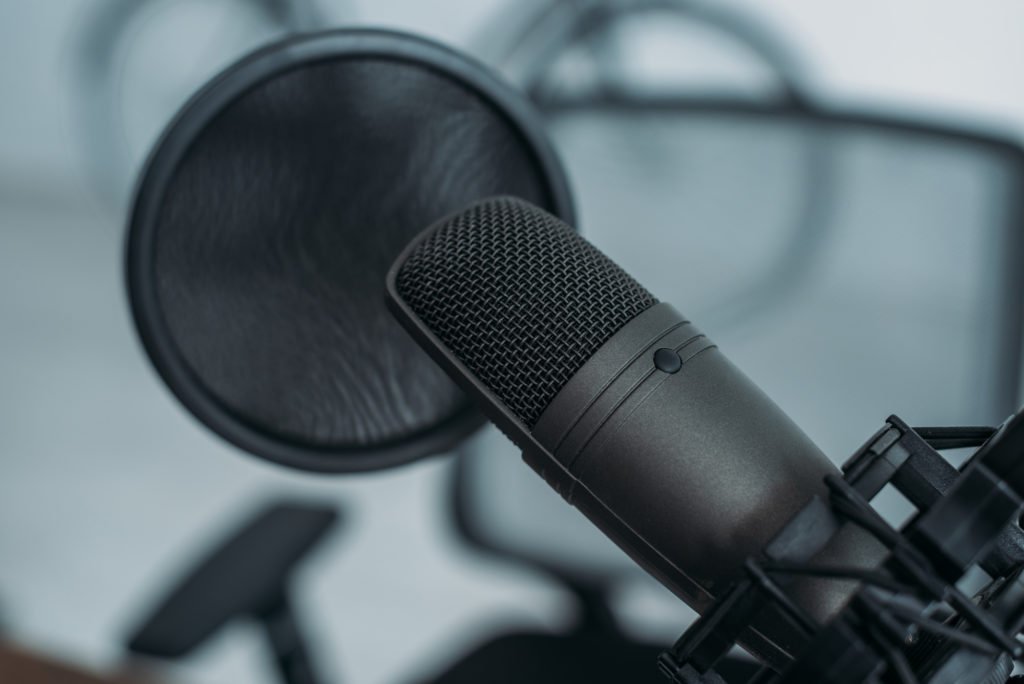Discovering how your voice sounds to others is a humbling rite of passage for the modern person. From recording voicemail greetings to home videos, you’ve probably made the startling realization that you don’t hear your speaking or singing voice the way others do. This phenomenon is called voice confrontation.
You might’ve thought your speaking voice was deep and rich, like Morgan Freeman or Scarlett Johansson, but now you feel more like Steve Urkel or Minnie Mouse. It may be challenging, but try not to be discouraged if you dislike the sound of your recorded voice. There is hope for you!
In this article, you’ll learn why your recorded voice sounds different than expected, why your voice might sound bad, and how to improve the three fundamental factors, the Three Ts, of good singing.
Bone conduction: the deceiver of ears
If voice confrontation has made you feel betrayed by your voice and ears, understand that nothing is wrong with you. You weren’t dealt a lousy set of vocal cords, and you don’t have faulty ears. Your ears have simply been tricked by bone conduction.
Simply put, your skull bones send sound directly to your ears when you speak or sing. When you vocalize, sound waves travel from your vocal cords to your ears through two places: externally through the air and internally through your skull.
Fast-Track Your Success!!

VIP Membership includes:
- Exclusive Facebook Group
- Interact with our vocal coaches–ask them YOUR question
- Live warmups
- Masterclasses and Q&As with Brett Manning and his guests
- SS360 QuickStart Program
- SS360 – The FULL Systematic Vocal Course
- Vocal Hacks
- Range Builder
- Mastering Mix
- Mastering Harmony
- Mastering Vibrato
- Vocal Therapy
- Plus…exclusive content only found here all along the way!
You can struggle on your own, or you can get direct access to the Nashville Coaches who have launched some of the biggest names in the music industry.
“Is that how my voice sounds?”
Bone conduction boosts the low resonances your inner ear hears when talking or singing. This gives people the impression that their vocal timbre is deeper and richer than it actually sounds to others.
We all instinctively assume that how our voice sounds to us is how it sounds to everyone. However, only you can hear the internal conduction of your skull. When others hear your voice, and when you listen to yourself in a recording, you only hear the “air conducted” sound.
Voice confrontation may cause you to re-evaluate your self-perception, which can be very unsettling. Nonetheless, the fact that others don’t hear the bone-conducted part of your voice doesn’t mean you sound bad. In fact, research shows that people tend to favor the sound of their voice when they don’t know it’s theirs.
Though critical, bone conduction only affects the way you think you sound. While timbre is essential to your sound, it may not be why your voice sounds bad. It may seem obvious, but you may sound bad on recordings because you’re not a good singer… yet!
Analyzing Your Singing Voice

Amateur singers often know they sound bad but can’t explain why. The following concepts will teach you how to analyze the most crucial elements of singing: rhythm, pitch, and timbre. These are more easily remembered as the Three Ts: timing, tuning, and tone.
Remember, a problem well-defined is a problem half-solved. Training your ears to recognize the fine details of the Three Ts will enable you to fix the bad parts of your singing voice more effectively.
1. Timing (Rhythm)
Poor timing makes singers sound amateur. Your voice should move with the rhythm of the music. Make sure you don’t sing too fast or slow, speed up or slow down, or sing in the wrong places.
Ask yourself: is my rhythm solid?
2. Tuning (Pitch)
Singing the wrong notes, or singing the right notes inaccurately, is another mark of a bad singer. If you don’t sing in-tune correctly, people will say you sound “off-key,” and some will assume you’re tone-deaf.
Make sure you learn every single note you need to sing in a song. Also, practice the notes slowly and accurately. Finally, sing in a key that isn’t too high or too low for your voice.
Ask yourself, “are my notes accurate?”
3. Tone (Timbre)
Your vocal tone quality should match the mood of the song you’re singing. If your tone doesn’t match what the lyrics are expressing, your singing will sound “off” to your audience.
When practicing a song, take the time to define what tone qualities you should use. Also, make sure you’re not straining to sing any notes. And finally, assess whether your pronunciation is appropriate for the genre.
Ask yourself, “does my vocal tone sound right for the song?”
Learn from Your Recorded Voice
Recordings provide the most precise image of how we sound to others. Listening back to recordings is often the first time singers notice their imperfections.
Start to record yourself when you practice singing and listen back critically. You may be shocked how much this will help your ears focus “externally” when singing. Listening to your recordings could teach you almost instantly to listen past the color that bone conduction adds to your tone.
Use Your Smartphone!

Modern technology has turned our smartphones into the perfect recording device for practice. For example, iPhones now come equipped with the Voice Memos app. The convenience that comes from having recording software in your pocket is unrivaled. Imagine what it would’ve felt like to carry a clunky old tape recorder in your pocket!
PSA on Fancy Recording Equipment
Don’t fall into the trap of thinking that you need world-class recording devices to sound good on recordings. Bad singers sound bad even when singing into a $10,000 Telefunken microphone. Whitney Houston would’ve sounded amazing even singing to you through an old iPhone.
Falling In Love With Your Own Voice
Don’t talk yourself into believing that you’ll always sound awful. I can tell you from experience that it’s possible to fall in love with the sound of your voice; it’ll just take time and practice.
However difficult it may be, take the time to listen to your actual voice on recordings. I encourage you to try to find qualities in your recorded voice that you can compliment. Your true voice is special, even if right now it’s a diamond in the rough.
Benny Meza is a Master Associate at Brett Manning Studios in Nashville, TN. He’s taught over 8,000 vocal lessons and has worked with clients from Warner Music, RCA, Universal Music Group, and many others.
Book a Skype or In-Person lesson with Benny today!






